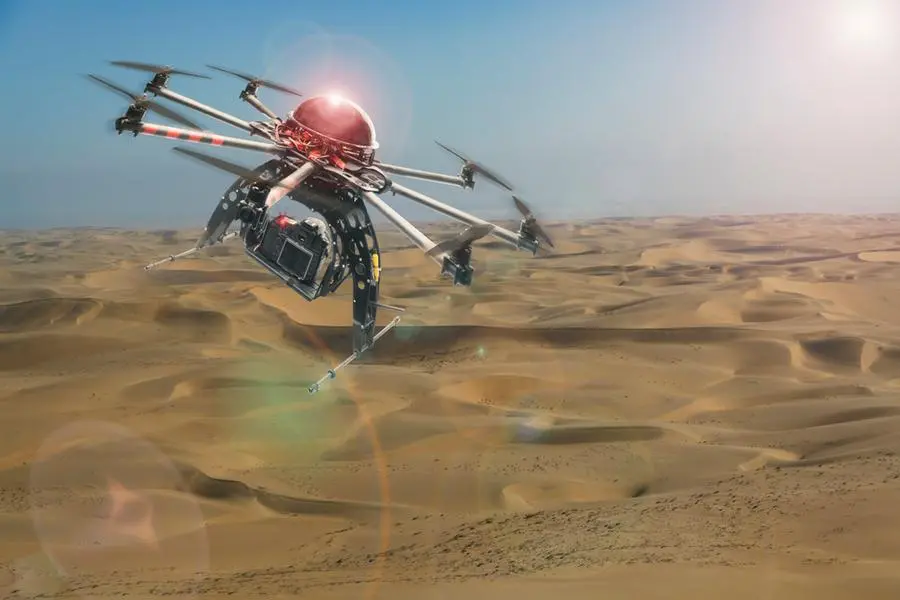PHOTO
Drones that can each seed an area the size of over 100 football fields per day will be used to make Abu Dhabi greener. Each seeding drone is capable of carrying 53 species at a time. The drones can record the exact planting location for each bag of seeds and monitor restoration success.
This came as authorities in Abu Dhabi inked a partnership with international environmental technology company Dendra to use seeding drones to assess and restore terrestrial and coastal ecosystems.
Solutions based on data and artificial intelligence will be deployed to preserve environmental habitats and local species in addition to restoring the ecological balance in wild and mangrove areas.
The first arid restoration trial is already underway in Al Dhafra, utilising drones for aerial seeding in the desert. Dendra’s method has overcome obstacles associated with traditional seed dispersal methods. It accelerates the rate of cultivation and planting, while providing access to remote areas. It allows the reintroduction of native species to an arid ecosystem without the use of irrigation by selecting areas that receive the largest amounts of rainfall annually.
Anas Jawdat Albarguthi, chief operating officer at investment and holding company ADQ, said Abu Dhabi is building an “R&D-powered supply chain” to bring native plant species back to its deserts and mangroves.
The Environment Agency - Abu Dhabi (EAD) will oversee the analysis phase of the trial to determine feasibility of future large-scale rehabilitation projects. The authority’s environmentalists conducted an extensive field survey covering 10,000 hectares.
Ahmed Al Hashmi, executive director of Terrestrial and Marine Biodiversity Sector at EAD, said the authorities will map natural vegetation habitats of Abu Dhabi and their interactions with human influences. “Based on this data we will be using drone technology to rehabilitate habitats for the greater goal of conserving our native terrestrial and marine ecosystems.”
Dr Susan Graham, CEO at Dendra, said their technology helps conserve, rehabilitate and restore ecosystems with distinctive challenges. Case in point is Abu Dhabi, “which spans several hundred thousand hectares of difficult-to-access arid landscapes and 600km of coastline”.
Earlier this year, ADQ and EAD had announced the deployment of artificial 3D-printed terracotta-based reef tiles off Abu Dhabi. Done in partnership with Archireef, a climate technology company headquartered in Hong Kong, the move aids coral restoration in the Arabian Gulf.
Copyright © 2022 Khaleej Times. All Rights Reserved. Provided by SyndiGate Media Inc. (Syndigate.info).





















